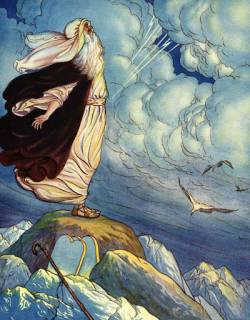
....
Matthew Levering begins his
Biblical Natural Law (2008) with
the observation that “natural law doctrine does not become
significantly more persuasive or effective once pluralism dictates the
exclusion of biblical revelation.”
19 He believes that “no matter how
nuanced the schemes for exhibiting basic requirements of human
flourishing or however much one attempts to provide an autonomous
role for human practical reason apart from natural teleologies”
implanted by the Creator there are insuperable difficulties: “the
‘human flourishing’ answers reduce to sophisticated pragmatism
rather than real ‘law’; the ‘practical reason’ answers appear to be a
premature restriction of the possibilities of human freedom in everevolving
history.”
20 Accordingly, the focus of his Biblical Natural Law
is on exploring three questions: whether there are biblical warrants
for natural law doctrine, what kind of natural law doctrine biblical
texts support, and what happens when natural law doctrine is left out
of constructive ethics arising from the Bible. Levering proposes four
constructive principles, centered upon biblical texts, for understanding
the relationship between Christian ethics, biblical revelation and
natural law doctrine.
382
Tracey Rowland
21
Ibid., 59–60.
22
Ibid., 61–62.
23
Ibid., 63–65. In this context Levering makes reference to material in the Book
of Wisdom, Sirach, and Proverbs.
24
Ibid., 65.
25
Ibid., 67.
First, Scripture presents certain goods as constitutive of true
human flourishing and thus of moral order.
Genesis 1–2 provides
one place where such teleological ordering, rooted theocentrically
in God’s creative providence, can be seen. Here we find in
germ the human natural inclinations . . . . God creates human
beings so that they are naturally ordered to preserve the good of
their human existence. Without the inclination to preserve this
good, God’s warning about the tree of the knowledge of good
and evil would not be intelligible . . . . God also inscribes within
human beings an inclination toward the good of procreation and
toward knowing the truth, ultimately the truth about the
Creator.
21
Second, Scripture does not countenance an absolute disjunction
between divine positive law and natural law . . . . God in giving
the Decalogue connects obedience to the Decalogue with a
glorious new creation in justice—a renewed creation that
reverses the Fall. . . . Jesus retains the Decalogue in the form
given to Israel.
22
Third, the Bible’s understanding of law is theocentric. Law does
not first pertain to “nature” or to human “reason” . . . . Law has
its ground in God, not in human beings. Our participated
wisdom cannot be understood without adverting to its divine
source. We do not constitute wisdom, but rather we receive it by
seeking to discern and participate in it.
23
Fourth, the grace of the Holy Spirit does not negate, but rather
fulfills the law’s precepts.
24
Given these four premises, “the question cannot be whether
Christian ethics must import an extrinsic system of natural law,”
rather, “Christian moral theology requires a philosophically sophisticated
natural law doctrine in order to do justice to the teachings of
divine revelation.”
25 This is because “ultimately the work of Christ
Natural Law: From Neo-Thomism to Nuptial Mysticism
383
26
Ibid., 176.
27
Lorenzo Albacete has described moralism as a modern form of Pelagianism, a
belief in salvation through good works and obedience which he suggests can only
be overcome by a “proper theology of grace in which grace is not presented as
something added to and external to the natural law itself, but rather as the
possibility of a personal encounter with Jesus Christ.” See L. Albacete, “The Pope
Against Moralism and Legalism,”
Anthropotes (1994): 85.
28
In this context, for instance, Eberhard Schockenhoff has emphasized the
importance of the distinction between the passive participation of irrational
creatures in the divine reason that governs the world and the actively regulating
participation on the part of the human person, and he has also acknowledged that
this distinction was often “flattened” in presentations about the natural law by neo-
Thomists. See Schockenhoff,
Natural Law and Human Dignity: Universal Ethics in an
Historical World
, 159.
29
Pinckaers grew up in a Walloon region of Belgium, had a Dutch-speaking
father and a Walloon mother, and was from 1983 until his death in 2008 based at
the Albertinum at the University of Fribourg in Switzerland.
and the Holy Spirit fulfills the natural law in us and elevates us to
Communion with the Trinity.”
26
This last principle sits well with the classically Thomist
definition of natural law as a participation of the rational creature in
the eternal law, a doctrine that opens natural law, in turn, to
theological anthropology and nuptial mysticism. The link between
the two is the notion of life as a theo-drama. In Balthasar’s terms, the
natural law is perfected and fulfilled by the ecstatic movement of a
person’s response to Christ’s love and hence participation in the life
of the Trinity.
This placement of natural law within a theo-dramatic and
explicitly trinitarian context helps to overcome the moralism or, to
use Ratzinger’s more specific term, “Pious Pelagianism,” which had
been fostered by the tendency to sever the study of spirituality from
moral theology and a purely philosophical account of natural law
from revelation.27
....
No comments:
Post a Comment